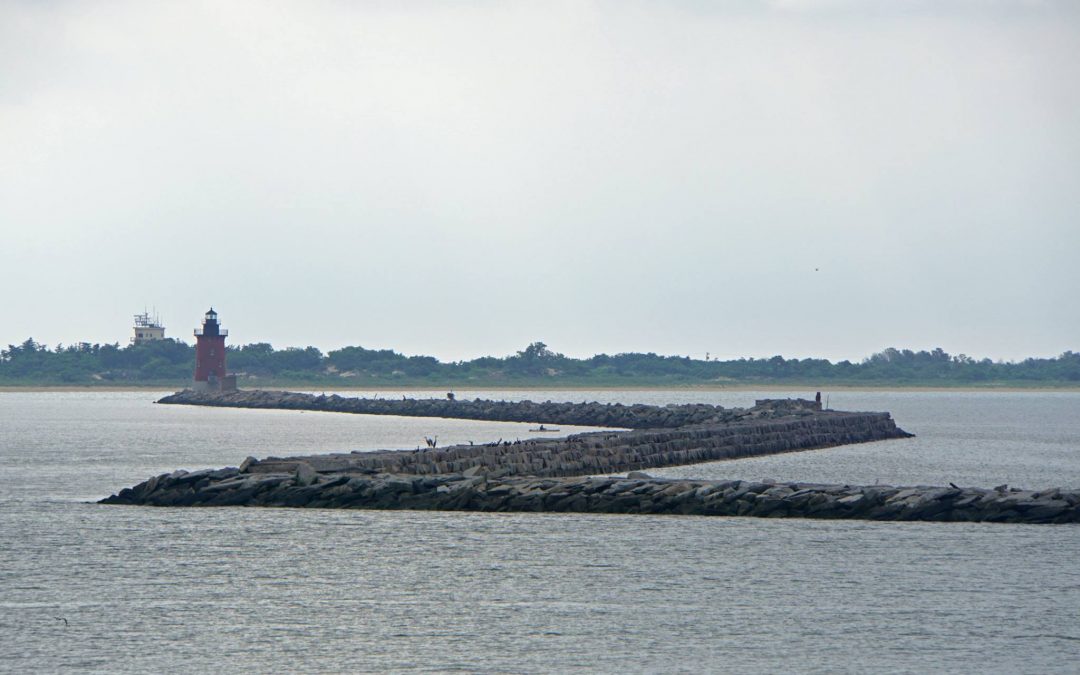Summer is a great time for getting outside and having adventures. And adventures are a great way to build your resilience. When you try something new, you typically encounter things you’ve never done before. Sometimes these things are exciting, but sometimes they are uncomfortable. Each time you deal with one of these challenges, you have the opportunity to practice using the mindsets and skills that make you more resilient.
Earlier this summer, I was invited to go on a sailing trip that started on the northern Chesapeake Bay with the eventual destination of Nova Scotia. I planned to go as far as I could before I had to go home at the end of the week. Here are a few of the things I encountered and the resilience lessons I learned:
1. The weather was hot and muggy, and on a boat there is a limited supply of fresh water and no air conditioning. As a result, sweat happens and showers are few and far between. This was a challenge for me because I like to wash my hair every day and don’t always sleep well when it’s so hot. Resilience practice #1: Accepting what is. I realized that there wasn’t anything I could do to change the weather, and I didn’t want to waste precious water, so I just decided that I would live with feeling sweaty and put my hair up so it didn’t bother me. Resilience practice #2: Experimenting. The original plan was for me to sleep in a bunk at the front of the boat, but the air flow was not very good there so I tried sleeping on a bench in the main cabin and was able to sleep better.

Lighthouse on the Chesapeake Bay
2. The captain had hoped to sail offshore to New England, and I was really looking forward to the chance to do that. But the wind did not cooperate. It was very light and variable, and we had to travel under motor rather than sailing. We decided that instead of going offshore, we would go up the Chesapeake Bay, through a canal, and down the Delaware Bay. Resilience practice #1: Reframing. Although I could have spent my time being disappointed in not getting to do the offshore sailing, I decided to see it as an opportunity to learn more about how to navigate the boat, and to enjoy the experience of seeing some parts of the US that I had not seen. Resilience practice #2: Creativity. Because we did not get to New England before I needed to head home for some work commitments, I had to figure out how to get home from the Delaware shore. Through a combination of dinghy, ferry, shuttle bus, transit bus, train, plane, and Uber, I made it home safely!

Saying goodbye to my boat companion
3. One of the ways I could help out on the boat was to do some of the cooking in the small galley (kitchen) with a propane stove and no electrical power. They use a percolator to make coffee, and a pressure cooker to cook things quickly. I had never used either of these. Resilience practice #1: Confidence and connection. I decided I would learn to master these cooking techniques, and asked my cousin to show me how to use them. When I produced my first successful dinner and my first pot of percolated coffee, I felt very happy! Resilience practice #2: Structure. Propane can be very dangerous on a boat. If it’s not handled carefully, it can be the source of deadly explosions. There were very specific procedures I needed to follow to make sure I was doing things safely in turning the stove on and off.
As you can see, none of these things involved huge problems; instead, they were part of a really nice week on the water. But when looked at through the lens of resilience, I can see that I got a chance to become just a little bit stronger and more skillful in mastering challenges.
What are the small challenges you have encountered lately, and how did you use them to practice your resilience?

